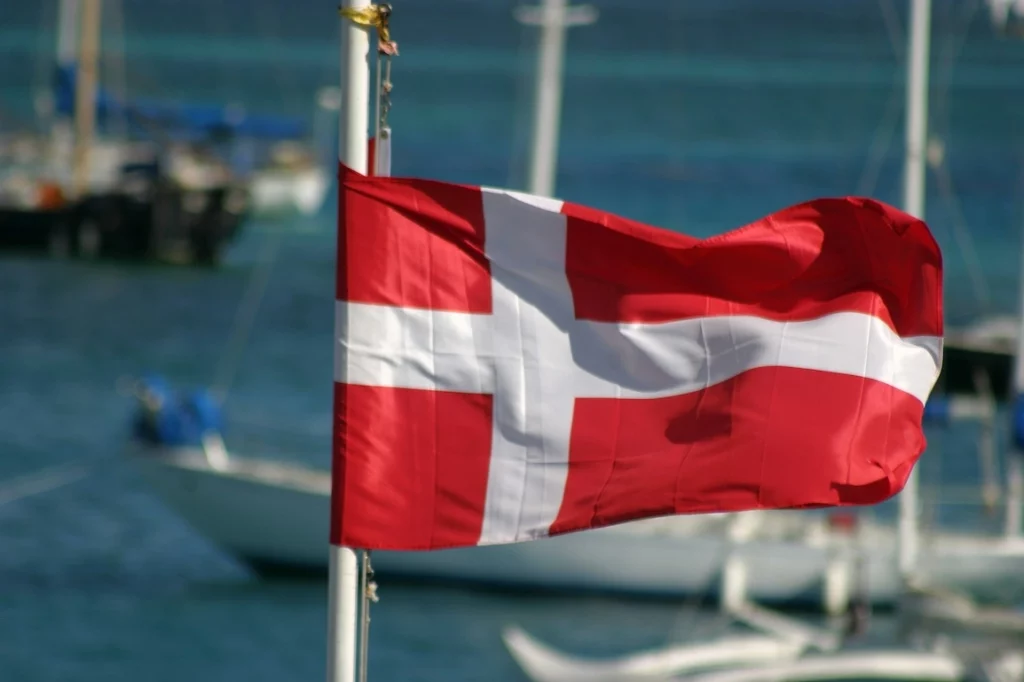Home > A Student's Guide to Studying Abroad in Denmark

A Student's Guide to Studying Abroad in Denmark
Denmark is an incredible country with a lot of opportunities for international students looking for an experience abroad for a year.
With a vibrant, friendly culture, modern amenities, and reputable academic programs, students around the globe are drawn to Denmark for their studies.
We have written this guide to help all students exploring their options to study abroad in Denmark. Whether you've already decided that Denmark is right for you, or you're still not sure and are in the fact-finding stages of your journey, we're here to help.
In this article, we will talk about how to study abroad in Denmark for a year - from finding a program and applying for your "visa" to some tips to help you adjust in a new country, we've got you covered.
While it is sometimes referred to as a visa, students studying abroad in Denmark do not apply for a long stay visa. Instead, they apply for a Danish residence permit.
?? The information in this article is specifically for US citizens looking to study abroad in Denmark.

How to study abroad in Denmark
Studying abroad in Denmark does require you to go through quite a few steps, many of them being logistical. However, simply understanding the steps you need to go through and a few tips to go about them can give you the confidence you need.
It all starts with understanding the options that you have and whether or not you can meet the minimum requirements (for both the university you're applying for and the "visa" you will need).
Generally speaking, applying for a Danish study permit happens in the following order. We will go through these steps in more detail in the next few sections.
- First, you need to find an academic program in Denmark that suits your needs.
- Make sure you can meet Denmark's student residence requirements.
- Next, you need to make sure that you can meet the admission requirements for the program that interests you.
- Apply for your Danish program.
- After you've applied for your program and have received an acceptance letter, you can start the residence application process.
- Collect all of the necessary documents for your residence application to study abroad in Denmark.
- Once your residency has been approved, begin preparing for your move to Denmark!
Let's go through the more actionable steps above in a bit more detail.
Traveling to Denmark? ??
Get European insurance at an affordable price, all online!
How to find a study abroad program in Denmark
While it's exciting to think about all of the things a study abroad program will bring to your life, like new (lifelong) friends, experiencing a new culture, and travel, you shouldn't forget about the core: your studies.
Finding the right program is important for your success as a student, professional goals, and happiness while abroad.
There are many opportunities in Denmark for international students. One of the most common ways to find one is through your current university.

If you're a current university student, checking in with your school's study abroad center is a great first step. There, you will be able to see what Danish programs and partnerships they offer. This is an excellent asset as they will likely have formal relationships established with Danish entities, as well as an excess of knowledge about the process.
If you're not a university student, there are still options for you. There are third party services (companies) that offer programs for students. These companies also often have partnerships with Danish universities, allowing for a more facilitated experience. With that being said, there are often limits to how long the programs are and additional fees.
Lastly, it is possible to enroll in a Danish educational institution independently - without the help of an American university or agency. You will need to pay close attention to program timelines, details, and whether or not you meet all of the requirements - from admission to permit.
Regardless of which route makes sense for you, there may be admission requirements such as:
- GPA
- Area of study
- Language proficiency
- And more...
Visa requirements to study abroad in Denmark
Program requirements aren't the only thing you need to think about when you're planning to study in Denmark.
Another milestone is getting "visa" approval. As detailed above, unlike in many countries, students traveling to Denmark need to apply for a residence permit, not a visa.
There is an application process you will be obligated to go through and it has its own requirements you will need to meet. We've listed the requirements for you below. Keep in mind we have written this guide with the US student in mind; requirements may differ for students of other nationalities.
- You must have proof of enrollment at a Danish higher-education institution.
- You must be a full-time student.
- You must be able to display proficiency in the language of your program (this could be in English, Danish, etc.).
- The educational institution must be publicly accredited and approved by a State authority.
- You must be able to prove that you can support yourself (financially) during the entire duration of your time in Denmark.
- If you're under the age of 18, there are additional requirements you must meet.
Please note: You should always get actionable information directly from official sites like the Danish Embassy or trusted partners (such as visa processors). Official sites will have the most up-to-date and accurate information.

How to apply to become a resident to study abroad in Denmark
Applying for residency to study abroad in Denmark is essential to your trip. Without it, you will not be allowed to study for a year on Danish soil.
To apply, you will need to start by creating a case order ID on the official New to Denmark website.
To apply, you will need to collect a series of documents. These documents, along with a completed application form, are what counts as your application. If you're missing any of the required files, your visa will be denied.
When applying, it's extremely important to pay attention to all of the details, from which documents are mandatory to what the requested formats are (originals, physicals, copies, translations, etc.).
When you apply, you will need to provide:
- Proof that you have paid the processing fee (you will get more information about this when you create your official case order, as noted above).
- Copies of every single page of your passport, blank or not, including the front and back covers.
- Proof of full-time enrollment at a Danish university.
- Proof that you can financially sustain yourself while in Denmark.
- If you are under the age of 18, you must provide additional documentation, such as a birth certificate and more.

Both you and your university/program will need to complete parts of the application. This can take place online or on paper, but if you do it online, your Danish university will need to complete their section of the application first, before you do. The official website will give you more details about this.
Once they have completed their part of the application, they will pass it back to you with details about how to access it.
Within 14 days of completing your residence application, you will need to submit your biometrics. This includes your fingerprints and a facial photograph.
Depending on where you submitted your application, you will need to go to a specific place to have your biometrics collected. This is typically a Danish consulate/embassy. If you applied while in Denmark, a SIRI branch office can collect your biometrics.
Make sure you always check the latest process through official Danish sites. Processes can change, so it's highly advised to take all actionable information through these official channels.
Tips for studying abroad in Denmark
Get reacquainted with the bike. Denmark is cycling-friendly, whether you're in Copenhagen or somewhere else, and there are many bike rental options you can benefit from. If you're a bit rusty, try getting back on the saddle before heading off.
Get familiar with conversion rates. Denmark's currency is the Danish Krone. Conversion rates are fluid and change all of the time. However, you can get a general sense of how the US dollar fares against the Danish Krone so you can have a better idea of what you're spending and how to budget your funds.
Understand the voltage. While you don't have to be an electrical expert, do know that the voltage Denmark runs on is different than the voltage back in the States. To use 110/125-volt appliances from home (such as curling irons), you will need to buy a transformer. Denmark's voltage is 220 volts (50Hz). Additionally, you will need adapters.

Embrace hygge. You may have seen the word before, but Danish culture centers around hygge - cosiness or togetherness. Danish people thrive on being together with friends and family.
Most beaches allow nudity. Because this isn't common in the States, it's just a head's up so you're not shocked when visiting the beach on warmer days.
Exercise punctuality. While in some European countries, being late is considered being on time (by American standards), this isn't the case in Denmark. Plan to be on time ?
